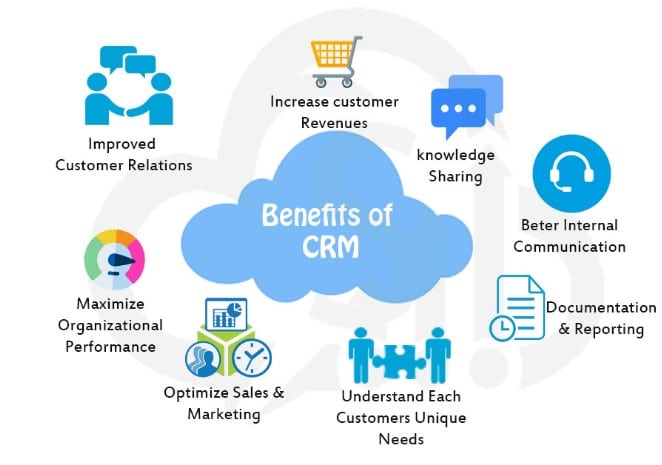Mastering CRM: 10 Essential Tips for Business Success – Customer relationship management (CRM) is essential for any business that wants to achieve long-term success. It involves managing all interactions with customers, including sales, marketing, and customer service. To ensure you get the most out of your CRM, we’ve put together these 10 essential tips to help you master the art of customer relationship management.

Table of Contents
- Introduction
- Understand Your Customers
- Choose the Right CRM System
- Ensure Data Quality
- Train Your Team
- Implement Automation
- Integrate with Other Systems
- Customize Your CRM
- Monitor and Measure Results
- Continuously Improve Your CRM
- Conclusion
- FAQs
1. Understand your Customers’ Needs
To effectively manage your customer relationships, you need to understand their needs. This involves researching and analyzing your target market, their preferences, and buying behaviors. By understanding your customers, you can create a more personalized experience that meets their needs and keeps them coming back.
2. Implement an Effective CRM Strategy
A well-defined CRM strategy is essential for success. You need to determine your goals, identify your target audience, and establish a plan to achieve those goals. Your CRM strategy should align with your overall business objectives and be flexible enough to adapt to changes in the market.
3. Choose the Right CRM Software
The right CRM software is critical to your success. It should be easy to use, customizable, and scalable to meet your business needs. You should consider factors such as functionality, security, and support when choosing your CRM software.
4. Train Your Staff on the CRM System
Your staff is an essential part of your CRM system. It is important to train them on how to use the software and understand its benefits. This will ensure that they can use the system effectively and provide excellent customer service.
5. Use Data Analytics to Gain Insights
Data analytics is a powerful tool for gaining insights into your customers’ behavior. It can help you identify patterns and trends, as well as opportunities for growth. You can use data analytics to optimize your marketing campaigns, improve your sales processes, and enhance your customer service.
6. Keep Track of Customer Interactions
It is important to keep track of all customer interactions, including sales, customer service inquiries, and support requests. This will help you to identify any issues and respond promptly to customer needs. A good CRM system should have tools for tracking customer interactions and providing insights into customer behavior.
7. Automate Routine Tasks
Automation is key to saving time and increasing productivity. You can use automation to streamline routine tasks, such as email marketing campaigns and customer service inquiries. This will free up your staff to focus on more important tasks, such as building customer relationships.
8. Personalize Your Communications
Personalization is essential for building strong customer relationships. You can use data analytics to personalize your communications, such as email marketing campaigns and social media interactions. This will help you to build trust and loyalty with your customers.
9. Use Feedback to Improve Your Service
Customer feedback is a valuable source of information. You can use feedback to improve your products, services, and customer experience. It is important to listen to your customers and respond promptly to their feedback.
10. Continually Monitor and Improve Your CRM System
Continuous improvement is essential for success in CRM. You should continually monitor your CRM system and make changes as needed. This will help you to stay ahead of the competition and provide the best possible customer experience.
Conclusion
Effective CRM is essential for success in today’s competitive business environment. By following the 10 essential tips outlined in this article, you can master the art of customer relationship management. Remember to focus on understanding your customers’ needs, implementing an effective CRM strategy, choosing the right software, training your staff, using data analytics, keeping track of customer interactions, automating routine tasks, personalizing your communications, using feedback to improve your service, and continually monitoring and improving your CRM system.
By implementing these tips, you can build stronger relationships with your customers, improve your sales and marketing processes, and ultimately achieve long-term success for your business.
FAQs
- What is CRM, and why is it important for businesses? CRM stands for customer relationship management, and it involves managing all interactions with customers, including sales, marketing, and customer service. It is important for businesses because it helps to build strong customer relationships, improve customer service, and ultimately drive growth and profitability.
- How can I choose the right CRM software for my business? When choosing CRM software, consider factors such as functionality, security, support, and scalability. Look for software that is easy to use, customizable, and able to meet your business needs.
- How can I effectively train my staff on the CRM system? Effective staff training involves providing hands-on experience with the software, offering ongoing support and resources, and emphasizing the benefits of using the CRM system.
- How can I use data analytics to improve my CRM strategy? Data analytics can be used to gain insights into customer behavior, optimize marketing campaigns, improve sales processes, and enhance customer service. Use data analytics tools to track and analyze customer interactions, and use the insights gained to improve your CRM strategy.
- How often should I monitor and improve my CRM system? Continuous improvement is essential for success in CRM. Monitor your CRM system regularly and make changes as needed to stay ahead of the competition and provide the best possible customer experience.